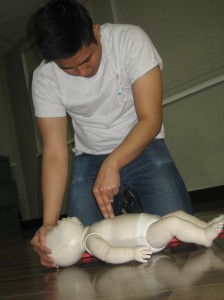Fact Checked
Overview Of Vomiting In Babies
- It is a joy to see your baby have their first drink– formula or breast milk.
- But it is worrying to see your baby throw up after they had some milk.
- Time and again new mommies seem to fear or become alarmed if the baby vomits, particularly after each feed.
- Even though vomiting certainly isn’t something to sleep over, it doesn’t always specify a threat either.
- Vomiting is deliberate defensive mechanism for the body.
New-borns and infants often spew up their milk while hiccupping, which is completely normal. - It is the initial defensive reaction, which tosses out what is not required by the body.
- Before you leap to any assumptions with vomiting, learn to identify the signs of what is expected and what is not.
- If your baby vomits once or twice during the day, but is otherwise in good physical shape, full of life and looks well, there may not be a reason to be concerned.
- New-borns and infants often spew up their milk while hiccupping, which is completely normal.
- For kids that are older, wait to see if the vomiting is consistent through the day.
Steps To Take
Before you provide any medicine (which is ill-advised without your doctor’s approval), apply these rules:
- Wait and lookout. Has your infant been vomiting all through the day? If not, then it’s logical to wait before you phone to make an appointment with your physician.
- Try to keep your infant hydrated with fluids and apply the rule of doing it with small sips and not mouthfuls.
- If your baby vomits up feed which is a little denser in consistency, looking like curd, after every feed, it may be because the baby is swallowing too much air while feeding.
- Make sure that your infant doesn’t suffer from lack of fluids after vomiting or goes into shock. That can result in other health problems.
- Don’t stress. Don’t try to force your baby to feed just because the baby is vomiting it all up again.
- Let their body recover and try again later.
- If it persists for longer than half a day, phone your doctor to make an appointment.
Related Video On Vomiting In Babies
